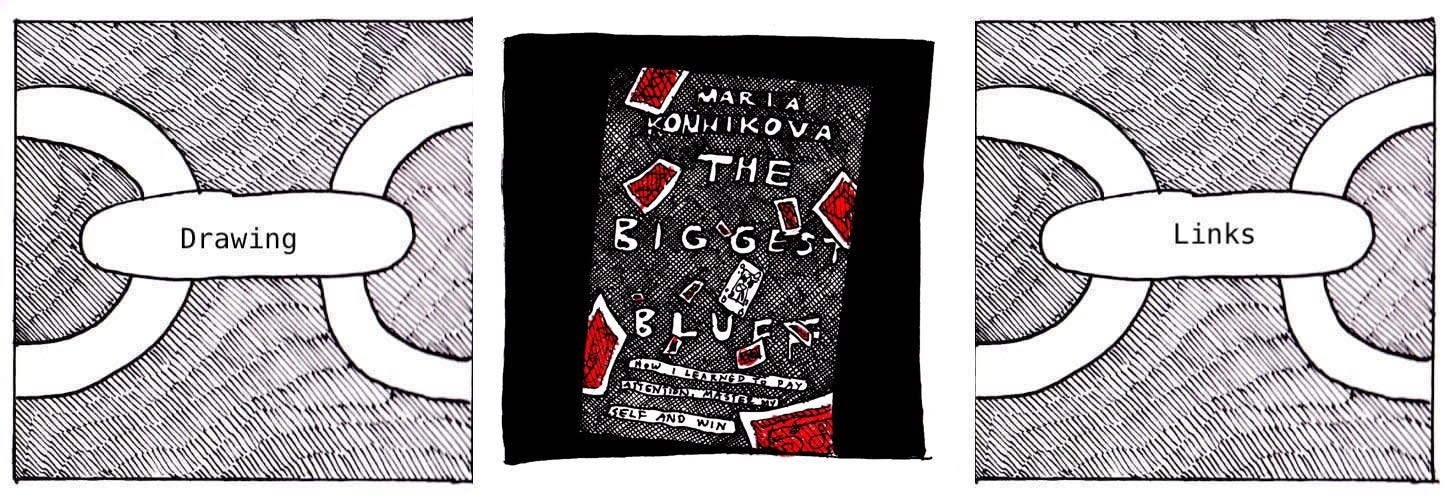
Hi, I’m Edith, and this is a newsletter with comics and links. I’d love to know what you think; please feel free to reply to this email!

Links:
The Biggest Bluff: How I Learned to Pay Attention, Master Myself, and Win, by Maria Konnikova [Penguin Random House]. Also: Maria on Twitter.
Konnikova in conversation with David Epstein, for Penguin Random House.
The Biggest Bluff reviewed in the NYT: “Konnikova is like your smart friend who instantly contextualizes everything by sharing the latest data and sharpest insight, whom you come to quote too often to other friends and family.”
The Biggest Bluff excerpts:
NYT: “Poker Taught Me How to Deal With the Hand of Fate.”
FiveThirtyEight: “The Hard Truth Of Poker — And Life: You’re Never ‘Due’ For Good Cards.”
The Atlantic: “How I Became a Poker Champion in One Year.” (“And I’m left with that frustrating not-quite-rage that, weeks later, miraculously coalesces into knowledge.”)
Also: Slate, Wired, Vanity Fair.





You can put a disclaimer like all the Good People do, in your own inimitable way. People like me who were probably going to buy the book somewhere anyway would be happy for you to be the one to get paid something if you give us a convenient link. I have an Amazon Smile account that benefits Higher Heights every time I buy something on my own. I don't mind Maria Popova and Tim Ferriss and so many others getting paid when they make recommendations I appreciate. It's a very tiny fee for such trusted curation! Look at the disclosures of ppl who have affiliate links. Some say "if you click here we get a small payment for which we are grateful" type of thing. Others say "if you want to buy the book from this (independent, Black-owned, whatever) bookseller you can click here" and whether or not they're taking a fee. Some say "If you buy through our link any fees go to (this cause/charity)." Transparency can help w credibility issues, and I would invite you to consider why anyone would judge you for earning money in exchange for what you share. I've found that "the thing we call money" - something that has barter value - comes in so many forms that ppl don't recognize. Plus, individuals' relationships with "money" colors how they feel about getting "money" and spending, saving, investing, giving, bequeathing, sharing...etc. and how they judge what other people do to get money & what they do with it. Someone's always going to be judging you anyway, whether you're getting paid or not, you know? You know.
Now I wanna read this book.